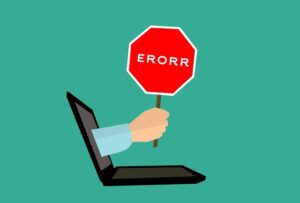 Tax season can be a stressful time, especially for freelancers who might owe taxes at the end of the year. It can be overwhelming to look at the tax debt you owe from the profits you have made.
Tax season can be a stressful time, especially for freelancers who might owe taxes at the end of the year. It can be overwhelming to look at the tax debt you owe from the profits you have made.
Our firm specializes in tax resolution and helping people who owe the IRS or state $10,000 or more. We’ve seen small business owners and freelancers get blindsided every year by a huge tax bill and often falling behind on their taxes for years on end. If that’s you, we can help. Contact our firm today to discuss your tax debt settlement options. Get help from Ron Friedman, CPA.
So, if you’re worried about how you’re going to pay your tax bill this year, try to relax. There are a wide variety of legitimate deductions you can utilize as a freelancer to bring your tax liability down. We encourage you to talk to a tax professional to see if any of the following deductions apply to you.
1. Home Office
If you have a home office, you will be able to deduct a part of your rent or home expenses as an expense for your business. Be careful though, home office deductions may require a dedicated office space so speak to a tax consultant to find out if you qualify. In addition to your home office, you can deduct any related office supplies you used over the year. Keep the receipts for paper, ink, and any other home office supplies you’ve purchased. You should also be able to deduct any technology you bought specifically for work. If you have a work computer, internet, and office furniture, those can maybe qualify you for a tax deduction. Furthermore, you can deduct any expensive software programs you need to purchase for work like Adobe photoshop or your word processor.
2. Insurance Premiums
If you work from home, you may be able to deduct your health insurance costs or any other insurance that is required for your job. If you have to purchase liability or malpractice insurance, that is a work-related deduction.
3. Travel Costs
If your work requires you to travel, the cost of that travel is a deduction. Hotel costs, mileage, and even food you eat during work trips are deductible expenses. However, if you are partially traveling for work and luxury at the same time you have to be careful. Any portion of your trip used for a personal vacation is not a deduction. You can only deduct expenses that are specific to your work costs.
4. Advertisement Expenses
If you’ve spent any money advertising your business, you can use that expense as a write-off. Any type of advertisement will qualify as a deduction whether you created online ads or utilized influencer marketing for sponsored posts. If you spent money on promoting your business, record that expense for your tax records.
5. Car Expenses
If your automobile is an integral part of your work, you can deduct expenses that are associated with it. You can itemize costs like auto insurance, gas, and any maintenance work you had to pay for. However, you can only deduct the expenses you utilized while working. If you used your business car as a personal car, you cannot deduct all of these expenses and will need to figure out the percentage of time you used your car to work.
6. Occupational Licenses
If your freelancing job requires you to pursue a license in your field then that license becomes a business expense. You may not have to renew your license annually but in the year you pay to renew, you can deduct that from your tax costs.
Owe Back Taxes and Need Tax Relief?
While many of these tax breaks may seem incredibly appealing, filing them incorrectly can result in an audit or the IRS disallowing your deductions and charging you penalties and interest on your tax debt, making your problems worse.
If you want an expert tax resolution specialist who knows how to navigate the IRS maze, reach out to our firm and we’ll schedule a no-obligation confidential consultation to explain your options to permanently resolve your tax problem. Get help from Ron Friedman, CPA.




